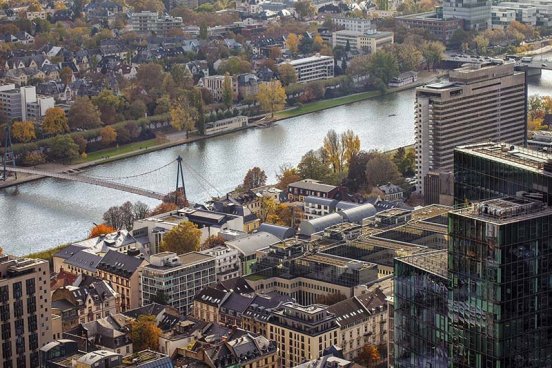
Ratings of the most comfortable countries to live in remain in demand due to the rapid growth in the number of people planning to move abroad. Advances in technology and communications, the desire for a better quality of life and cultural curiosity have pushed a rising number of people to migrate outside their home countries. Digital nomadism, globalisation that has made it easier for companies to operate abroad, tax incentives, and new programmes for residency and citizenship by investment are contributing to this trend.
While each state offers a unique experience, there are a few key factors which are fundamental when it comes to choosing a place for relocation. Quality of life is the most important one. Its main indicators include wealth, employment rates, environmental quality, access to healthcare and education, availability of social support, access to recreation and leisure, safety and freedom.
Unlike GDP per capita, an indicator that can be calculated in financial terms, objective measurements of the quality of life are much more difficult. There is no single standard to determine the level of well-being of citizens. Therefore, the top lists of the best countries in terms of living standards compiled by different organisations will have completely different information. However, the most popular rankings have a number of similarities.
Content
How to choose the best country in the world to live in?
To select a place to move to, you need to identify the basic characteristics that are important to you, such as location, climate, cost of living, and language. Select the options that match your preferences and study the legalisation conditions. Many countries have programmes for obtaining residence permit/permanent residence permit/citizenship for investment.
To find the right programme for you, as well as to get help with application and finding accommodation, contact our experts. The Citizenship-By.Investment platform has an extensive property section with properties from reliable developers and agencies in more than 50 countries.
Criteria for assessing the standard of living by a country
The quality of life is one of the main criteria used when choosing a country to immigrate to. Numerous organisations update annual rankings based on this indicator. Despite the different evaluation criteria, universal parameters include:
- Income level. Income determines the quality of a person's life, influencing his/her social status and psychological state. A high level of income allows not only to cover basic needs and pay for housing, transport and education, but also to purchase luxury goods such as elite real estate, cars, trips abroad, etc.
- Purchasing power. It is a measure of the amount of goods and services that can be purchased with a certain amount of money.
- Education and healthcare quality. Education plays a significant role in issues such as citizen participation in the development of society, the ability to build a career, and health care plays a significant role on the quality and length of life, demographics, and everyday comfort.
- Political system. The political system influences the economic, social and legal status of citizens, as well as their opportunities and freedoms.
- Economy condition. The level of economic development of a country determines the provision of the population with goods and services necessary for comfortable and safe existence.
- Labour market situation. The state of the labour market affects the level of wages, employment stability, the qualifications of workers, the degree of labour protection, the intensity of work and social and legal guarantees.
- Taxation system. The tax system is at the intersection of political, social and economic interests of society and government. The welfare of the population depends on how rationally taxes are distributed.
- Entrepreneurial freedoms. The presence of government intervention in the production and distribution of goods and services has a direct impact on the quality of life of citizens.
Additional factors include:
- Climate.
- Location.
- Environment.
- Infrastructure.
- Property values.
- Rental rates.
- Crime rate.
UN Human Development Index (HDI) rankings
The HDI is an indicator that is calculated annually to assess the human potential in each country. It is based on parameters such as:
- Life expectancy.
- Population literacy rate and learning expectancy.
- Standard of living, which is measured using gross national income (GNI) per capita at purchasing power parity (PPP).
The index can range from 0 to 1, where 1 is the maximum possible level of human development. It is divided into 4 levels:
- 8-1 - very high.
- 7-0.79 – high.
- 55-0.7 – medium.
- Below 0.55 -
| Country | HDI for 2022 (latest available data) |
|---|---|
| Switzerland | 0.967 |
| Norway | 0.966 |
| Iceland | 0.959 |
| Hong Kong | 0.956 |
| Sweden | 0.952 |
| Denmark | 0.952 |
| Germany | 0.950 |
| Ireland | 0.950 |
| Singapore | 0.949 |
| Australia | 0.946 |
However, the HDI covers only part of the factors related to human development. It does not take into account social inequality, poverty levels, human security, availability of rights and freedoms, etc.
CEO World rankings
CEO World is a leading business publication that provides in-depth analysis and information on the most important issues facing CEOs, investors and business leaders today. Each year it compiles international rankings in categories ranging from the richest people on Earth to the best countries to live in.
The publication's annual top countries for living standards are based on the Human Progress Index (HPI), which takes into account the following indicators:
- Stability: taxation system, income and expenditures of citizens, labour market situation, life expectancy and housing conditions.
- Satisfaction: quality of education and healthcare systems, state of infrastructure, crime and corruption levels, and happiness index.
- Balance: amount of time spent on labour activity and personal life, environmental situation, observance of rights and freedoms of citizens.
| Country | HPI for 2024 |
|---|---|
| Switzerland | 97.9 |
| Norway | 97.87 |
| Iceland | 97.47 |
| Hong Kong | 97.31 |
| Sweden | 97.28 |
| Denmark | 96.92 |
| Germany | 96.54 |
| Ireland | 96.08 |
| Singapore | 95.9 |
| Australia | 95.78 |
Читайте еще
US News & World Report Rankings
US News & World Report is an American news publication that provides information about political and economic events in the world. It publishes an annual ranking of countries by standard of living based on population surveys. The study takes into account more than 60 criteria, including political and economic indicators, labour market conditions, income and unemployment levels, quality of education and health care systems, and security.
In 2023, the ranking of the best countries in the world, according to the publication, included:
- Switzerland.
- Canada.
- Sweden.
- Australia.
- The US.
- Japan.
- Germany.
- New Zealand.
- The UK.
- The Netherlands.
Legatum Institute ranking by prosperity level
The Legatum Institute is an independent educational and charitable organisation. Its ranking of the world's best countries to live in is based on a prosperity index that covers factors such as wealth, economic growth, education, health, personal well-being and quality of life.
In 2023, the following nations ranked in the organisation's top 10:
- Denmark.
- Sweden.
- Norway.
- Finland.
- Switzerland.
- The Netherlands.
- Luxembourg.
- Iceland.
- Germany.
- New Zealand.
Numbeo Quality of Life Index
Numbeo is a Serbian crowdsourced online database. It collects information on consumer prices, real estate and quality of life in various countries. Ratings are generated thanks to data added by real users in free mode and manually collected from company and government websites.
The Quality of Life Index (QOLI) is a combination of 8 parameters:
- Purchasing power.
- Safety.
- Health care.
- Cost of living.
- Ratio of property price to citizens' income.
- Commute times.
- Pollution levels.
- Climate.
| Country | QOLI for 2024 |
|---|---|
| Luxembourg | 219.3 |
| The Netherlands | 207.5 |
| Denmark | 205.6 |
| Oman | 204.3 |
| Switzerland | 204 |
| Finland | 199.9 |
| Iceland | 199.7 |
| Austria | 190.8 |
| Norway | 189 |
| Sweden | 186.7 |
Best countries to move to based on standard of living
Although each organisation uses different factors to determine the best country to live in, most of the rankings are similar. Scandinavian countries top almost every list. In most cases, Europe remains one of the most favourable places to relocate, holiday, work and do business.
Switzerland
The Swiss Confederation is a Central European state bordered by Germany, Austria, Liechtenstein, France and Italy. Most of its territory is covered by the Alpine Mountains. The settlements are mostly located on the plateau. The country's population exceeds 8.9 million.
Switzerland is characterised by stunning landscapes, clean air, modern infrastructure, quality education, immense wealth and an even distribution of resources. The confederation has remained the best country to live in rankings by many organisations for many years running. It surpasses the average in terms of income, quality of education and health care, environmental conditions, safety and longevity.
The advantages of Switzerland:
- Average adjusted net national income per capita is $39,697 per year. This is above the average of other Organisation for Economic Co-operation and Development (OECD) countries at $30,490 per year.
- About 80% of people aged 15-64 in the country are in paid employment, above the OECD average of 66%.
- 89% of adults aged 25-64 have completed secondary education (OECD: 79%).
- Life expectancy at birth in the confederation is about 84 years (3 years above the OECD average of 81 years);
- 94% of citizens have someone to rely on in emergency.
Denmark
Denmark is a Northern European country, part of the Kingdom of the same name, of which the Faroes and Greenland are also members. It shares borders with Sweden, Norway and Germany. It is the southernmost and most populous Scandinavian country. Its population exceeds 5.9 million.
Danish citizens benefit from work-life balance, environmental quality and health care. It is also characterised by a small wealth gap among residents, making it the most comfortable country to live in.
The advantages of Denmark:
- Average adjusted net national income per capita is $33,774 per year.
- About 74% of people aged 15-64 in the country are gainfully employed.
- 82% of adults aged 25-64 have completed secondary education.
- Life expectancy at birth is about 82 years.
- 95% of citizens have someone to rely on in emergency.
Sweden
The Kingdom of Sweden is another Northern European country, the largest on the Scandinavian Peninsula. It borders Finland and Norway. Its population reaches 10.6 million.
Sweden consistently ranks high in the top good countries to live in, thanks to the high affluence of its citizens, strong social support networks and a healthy work-life balance. It offers the longest paid holiday compared to any other nation in the world (41 days) and young parents can take 480 days off, during which they receive around 80% of their salary.
The advantages of Sweden:
- Average adjusted net national income per capita is $33,730 per year.
- About 75% of people aged 15-64 in the country have a paid job.
- 84% of adults aged 25-64 have completed secondary education.
- Life expectancy at birth is about 83 years.
- 94% of citizens have someone to rely on in emergency.
Norway
The Kingdom of Norway is a northern European country located on the mainland of the Scandinavian Peninsula and many small islands along the coast. It shares borders with Sweden, Finland and Russia. Its population exceeds 5.6 million.
Norway is also among the best countries to live in. One of the reasons for its top ranking is the population's belief that democracy should ensure social and economic equality. The result is a smaller income gap, free healthcare and institutional trust.
The advantages of Norway:
- Average adjusted net national income per capita is $39,144 per year.
- About 75% of people aged 15-64 in the country are gainfully employed.
- 82% of adults aged 25-64 have completed secondary education.
- Life expectancy at birth in the state is about 83 years.
- 96% of citizens have someone to rely on in emergency.
Iceland
Iceland is a Northern European country located on the island of the same name, which is washed by the Atlantic and Arctic Oceans. The population is approximately 390,000.
Iceland regularly tops rankings of living standards by country. It has been selected by the World Economic Forum as the best nation for gender equality and by the Institute for Economics and Peace as the most peaceful nation. The Republic is also characterised by an excellent ecology.
The advantages of Iceland:
- Average adjusted net national income per capita is $39,074 per year.
- About 78% of people aged 15-64 in the country are gainfully employed.
- 76% of adults aged 25-64 have completed secondary education.
- Life expectancy at birth is about 83 years.
- 98% of citizens have someone to rely on in emergency.
Australia
Australia is a nation located on the continent of the same name and several neighbouring islands in the Southern Hemisphere. Its population exceeds 26 million.
Australia is one of the few non-European countries in the world rankings. It scores highly in income, education, health, environmental quality, job availability, social connections, civic engagement and life satisfaction.
The advantages of Australia:
- Average adjusted net national income per capita is $37,433 per year.
- 73% of people aged 15-64 in the country are gainfully employed.
- 84% of adults aged 25-64 have completed secondary education.
- Life expectancy at birth is 83 years.
- 93% of citizens have someone to rely on in emergency.
Best country to live in Europe
Finland is recognized as the best country to live in among the European countries. Its picturesque nature, thriving culture, stable democracy and excellent investment climate attract expats from all over the world. The country's average adjusted net national income per capita is $33,471 per year.
In terms of employment, around 72% of people aged 15-64 in Finland are gainfully employed, while 91% of adults aged 25-64 have completed secondary education. Life expectancy in the state is 82 years. 96% of citizens have someone to rely on in emergency.
Other comfortable countries in Europe to live in include:
- Portugal. A favourable climate, beautiful nature, cultural wealth and developed infrastructure are the republic's strengths. Expat families, entrepreneurs, retirees and qualified professionals planning to be officially employed in the country often move here. The state has a programme for issuing investment residence permits.
- Greece. Numerous historical monuments, landscaped beaches and affordable housing prices make the country one of the best immigration destinations. Transparent legislation and favourable tax system attract entrepreneurs and investors. Foreigners can apply for a golden visa.
- Hungary. The country is gaining popularity as a destination for tourism and immigration. A growing economy, low tax burden and a simplified residency programme, which is scheduled to be launched in early 2025, create favourable conditions for business and investment.
To get a golden visa in Spain, Switzerland or any other country with a high quality of life, contact the specialists of Citizenship-By.Investment. We will help you to find the right programme and accompany you at all stages of both residence permit and citizenship.
FAQ
Factors to consider before relocating include:
- Cost of living.
- Labour market conditions.
- Health care standards.
- Political situation and crime rate.









